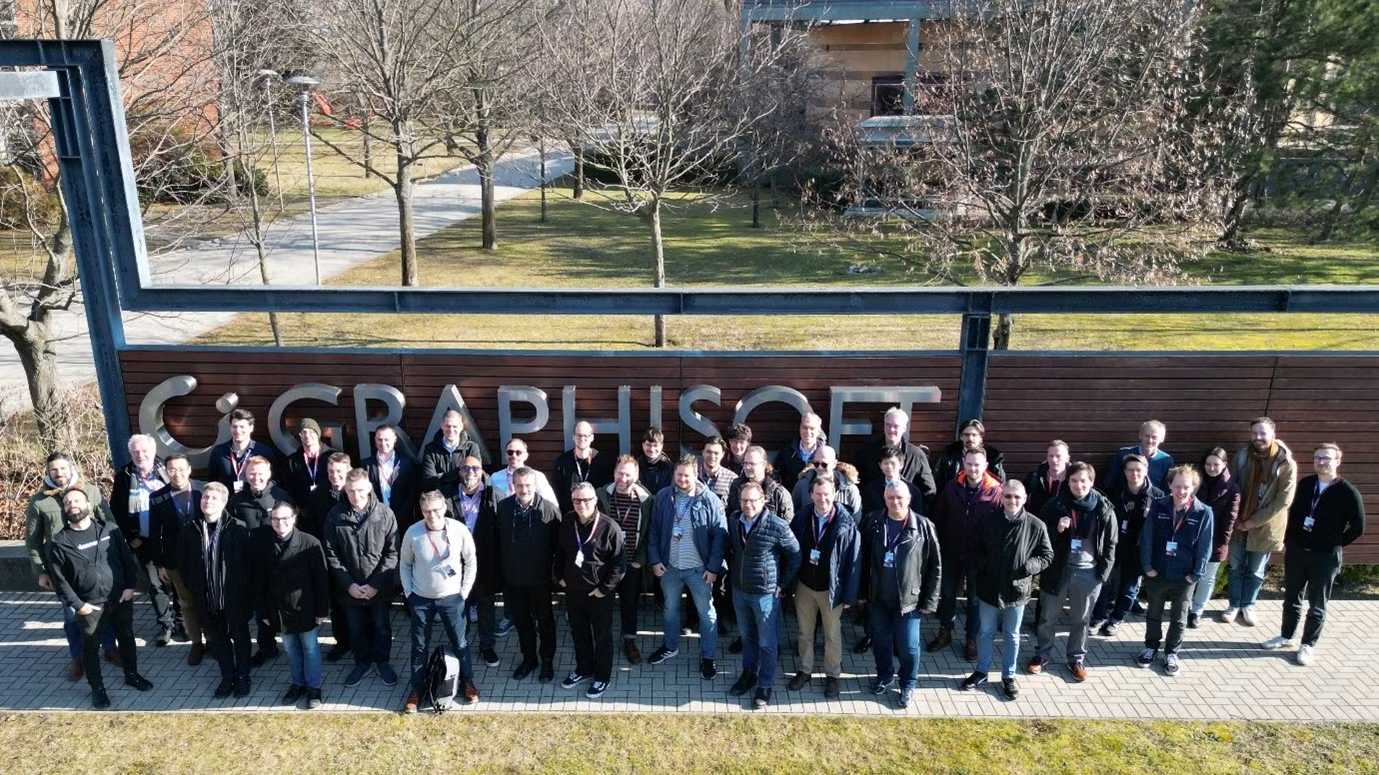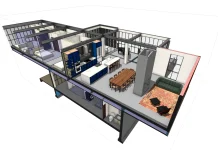Sam Stacey explains how the Transforming Construction Challenge, part of the Construction Sector Deal, excels innovation and pushes for quality planning
The four-year Transforming Construction Challenge represents a historic investment from government of £170m.
The Sector Deal and the Challenge are two years old this month. The Challenge exists to accelerate innovation, and the development of new supply chain capacity, to establish the rules, and ecosystem, for widespread adoption of digital manufacturing, and to scale-and-share best practice.
Why is the transformation needed? Well, the current system isn’t working for anyone.
Among other things, clients don’t get what they need from projects that typically don’t deliver on time or budget. While profit margins are notoriously low in the industry, we also know that a great deal of effort is being dissipated as waste, waste in the form of time, energy, talent and defects. That waste typically represents 50% of project activity.
There is currently a lack of standardisation in the way projects are delivered, which means lack of repeatability and acts as a barrier to supply chain investment in efficient processes and equipment. The standardisation of quality management processes is therefore essential.
Current quality management issues
Stepping through the doors of a brand-new building, your first natural reaction may be to cautiously question its level of quality. Does the structure feel safe and sturdy? Have high-quality materials been used? Do the building components fit together faultlessly?
Despite the critical need for public assurance in the safety of new buildings, quality planning remains one of the sector’s most inconsistently standardised processes, especially as construction becomes more manufacturing-led. In fact, in many parts of the industry, a problematic culture of ‘defect-checking’ exists, meaning that issues are assumed to exist and will be checked and corrected at a final quality control stage.
What’s more, quality management methods can vary widely across new building projects, with no common industry-specific quality management standard in place to define the way new construction products are brought to market.
A ‘zero-defects’ culture
This issue becomes increasingly stark when compared to processes used in the manufacturing industries. Unlike construction, sectors such as aerospace and automotive follow global industry-wide standards to effectively ‘build in’ quality when developing new products. This has created a strong ‘zero-defects’ culture, meaning that new parts for cars and airliners cannot be used before passing a series of meticulous, standardised quality assurance procedures.
As part of our mission to help transform UK construction, we in the Construction Innovation Hub (CIH) are working to transfer and embed this ‘zero-defects’ mind-set within the built environment. While schools and hospitals may not have wheels or jet engines, they ought to be planned and built with the same amount of rigor and consistency as the latest top-of-the-range car model.
Construction Quality Planning
Combining expertise which spans building science, advanced manufacturing and digital construction, CIH has developed a new quality process unique to the construction sector: Construction Quality Planning (CQP).
CQP is an adaptation of Advanced Product Quality Planning, a standardised quality planning process in broad use by the manufacturing industry. It serves as a consistent tool to evaluate and mitigate the risks of complex new products being introduced to the supply chain.
Similarly, Construction Quality Planning (CQP) will support innovative products being brought to the market by firms that feed construction with components for offsite builds. CQP will ensure that new parts uphold scrupulous quality standards and conform to the fit, form, and function needed by the industry. This will provide a much-needed standardised process for the construction industry to measure quality data and outputs. Crucially, CQP could also lead on to future accreditation schemes, providing confidence to clients, insurers, lenders, and contractors.
Input needed
As with all parts of CIH’s transformative programme, we depend upon input from the industry to ensure this potentially game-changing solution delivers for the sector. To understand how CQP can be put into practice, we are currently holding workshops with a broad range of stakeholders from across Government, architecture and the manufacturing and construction sectors.
We know that the key to CQP’s success is its aptitude for meeting the unique needs of construction, which is why the Draft Guide for CQP is open for consultation until 31 July 2020. CIH is keen to gain input from across the sector, particularly public and private sector clients and those involved in offsite manufacturing. By continuing to collaborate with industry, we can pave the way towards a ‘zero-defects’ culture in construction that delivers high-performing, safe buildings in which quality is guaranteed.
Collaboration and new business relationships are a vital factor in the successes we are already seeing from the Transforming Construction programme. At the start we set ambitious targets for reduction in whole life project costs, time and carbon emissions – and the work we have done on schools, housing and office developments, is proving that these targets can be achieved. In all cases, the organisations came together with a shared set of goals.
Government procurement will be a key driver in the adoption of CQP, much as it was in the take-up of digital techniques. The BIM Level 2 capability mandated in 2016 for Government-procured buildings has made the UK a global leader in digital construction.
We are working across the Government departments to drive manufacturing approaches. In the case of schools, work is well advanced with the Department for Education to have all schools built to net-zero using standardised processes and platform designs. The expectation is that this will enable nine schools to be built for what five cost at the start of the programme.
Construction Quality Planning and the wider Transforming Construction programme supports a wider vision of a construction sector that delivers a better living, working and learning environment for the society.
CIH wants to hear your thoughts on Construction Quality Planning.
The consultation closes on 31 July, see more here.
Shivam Chauhan
Technical Lead (BRE)
Sam Stacey
Challenge Director
Transforming Construction (UKRI)














